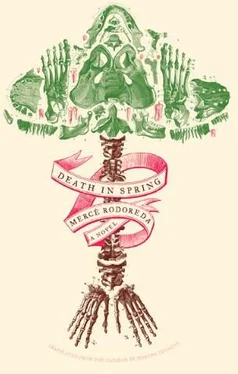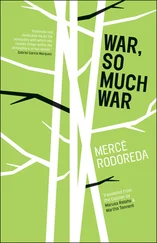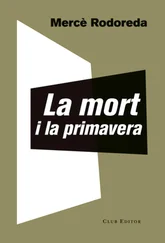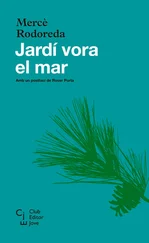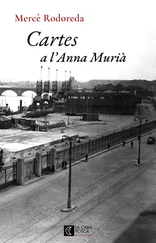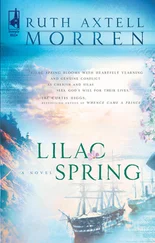While he was speaking, night fell, and I returned home, taking my time as I walked along the streets, everything asleep. I thought about the blacksmith’s son. One day he told me he could feel when desire wafted through the village. Desire weighed on his chest, the same heaviness and troubled spirit in his blood as when a storm was brewing. I stopped in front of doors, and in the darkness I could make out the large black smudges left by so many hanging birds. One night, as I lay in bed listening to the flow of the river, I felt it was true; I was like a river with the earth below and air above. The true river had stopped, and I was the one who flowed farther and farther away, all alone in the center, trees on both sides. Then the prisoner spoke to me of desire.
Not the desire of children, who want everything, he said. All the women in the village have long hair. Here he stopped that first day. He stopped at the beginning. When he’d finished explaining, I couldn’t see his face, only the shadow of his head, like the night above the cemetery of the uncemented dead, when I could see only the shadow of my stepmother’s hair. All of them have long hair until. and when they desire a man, if her husband realizes it, if he realizes, he said, then he begins to stroke his wife. He does everything she wishes. Everything. And while he’s doing everything she wishes, one day he takes her, sits her on his lap, and places his lips against her neck. But first he takes her hair and gently moves it away from her neck, brushing her hair aside; some strands slip away, fall, and he picks them up again until no hair remains on her neck. Then he places his lips on her neck and tells his wife to say the name. The name. He asks and asks. The wife won’t tell, doesn’t tell him. No. Some of them almost die. Finally, some wives, drowsy from the gentle kisses and the soothing feeling on their hairless skin, tell their husbands. The prisoner spoke softly, so softly I had to move closer in order to hear, and I realized I was doing the same thing as the blacksmith’s son: with the first two fingers on one hand I was spreading the fingers on the other, almost tearing the skin at the joints. He told me they’d killed my father’s desire after my mother turned ugly, when she screamed the loudest at the newlyweds, before he brought my stepmother home. He said they’d killed my father’s desire, and that of many in the village. The village was full of them, and when they’ve killed your desire, they look at you tenderly, all happy, as if you were a child. A man and a woman, he said, walk past each other on the street and look at each other. It’s the birth of desire. When desire is killed in old men they seem more dead than others. When the husband has forced out the name, he makes his wife lie on the bed and has the other man brought to him, makes him lie next to his wife, and stands at the foot of the bed watching. If the wife has given the other man’s name, he can’t refuse to obey the woman’s husband. They can look at each other but they can’t speak. It depends on the kind of woman: some won’t look, others won’t stop looking, and, as time elapses, her husband at the foot of the bed becomes more and more of a man. And the two who are lying down become less and less man and woman with each passing moment, till finally the day arrives when the woman covers her face with her hands and screams. This is how they kill desire, bit by bit, if need be. The longest phase lasts an afternoon. If the woman doesn’t scream, there’s another afternoon. Sometimes this lasts for months, if the husband encounters strong desire. When the woman screams, desire flees from the hearts of the man and woman. I had it. It was born, I don’t know how. I did everything I could so they wouldn’t notice. I didn’t look. But they discover it in your eyes. Don’t look. They guessed it in the woman, and I knew she wouldn’t be able to bear it and would reveal my name right away. I could feel it stretched out in bed, ill all over. I don’t know how, but I could feel the weight of her hair as it slipped between her husband’s fingers, again and again. It was worse than listening to the river flow, day and night, worse than neighing. Worse than everything. It was as if every strand of hair that his hand brushed away was strangling me, each hair one day of my life, a fleeting day, while I lay still and salt water streamed from my body, out of my pores. Look at all the men in the village whose desire has been killed; they have eyes like horses that don’t know when they’re living and when they’re slaughtered. They are the ones who stand in front of the others when they come to gaze at me. They’re like me.
For some time I couldn’t rid myself of the blacksmith’s son, so I began doing everything I could to avoid encountering him. I left the house when I knew he was coming. I stopped going to the places I used to frequent. I would pretend to go down one path, then cut off to another. He appeared everywhere, as if I had told him where I was going before even I had decided. My child would wander aimlessly if she wasn’t with him; and if she spent a whole day without seeing him, she would throw herself on me, scratch me, crying that she wanted him, wanted black night. When we slept, she would sneak out, and I would have to search the village streets to find her. I finally had to let it be, and when I allowed them to do whatever they wanted, then the blacksmith’s son spoke of the green window. I could tell he was happy to talk about it because he sensed I was weary of him, and while he talked he stared at me with a leaden look, pretending he was sorry to tell me these things, but happy inside that he could. I began to know him. He carried about him all the rancor of having suffered the life he had been forced to live. Without my wishing it, he knew how to draw me to his side. For some time he told me that I was a hand to him, repeating it so often that I couldn’t stop thinking about it. It entered my blood. When he sensed I was snared, he breathed deeply, and I shriveled up. I would take hold of my daughter and ask her whose child she was, and when my child said she was his, she looked at me for a long, long time without blinking, her eyes like still water. He asked me if I had ever looked behind the green window. I have, he said. I had never wished to grab him and kill him as much as that day. Often I had had to restrain my desire to kill him, push him off the Pont de Fusta into the river, strike him with an axe as if he were a tree of the dead. He told me in the red-powder cave, where for a long time he had wanted to go, but not alone. He told me, sitting on the ground, my child on his lap, breathing in the crimson powder — a lot had recently fallen from the ceiling, and a mound of it lay near the opening my stepmother and I had made to gain entrance to the second well. Everything smelled of powder and heather-earth. My child had fallen asleep, and he was stroking her hair, gently, almost without touching her. I told him another well existed, where you could hear the river flowing, but the water from that river had no outlet. If it had, the water would have been red when it surfaced the day we threw so much powder in it. He said the mud-flower pond lay beyond the tree cemetery, hidden in the growth at the end of the marsh, and the water in the pond was always half-red. The flowers bore the color of the water, as if in order to grow they had drunk from it. The pond was bloody from the red powder and the horses and old men from the slaughterhouse. He said he’d looked carefully at my house. As soon as he was able to leave his bed, he said, I started looking at things slowly because my eyes couldn’t hold so many new things at the same time. I wanted to see things; I knew nothing. Not about grasses or other people’s faces. You can’t imagine what it is to never see another person other than your parents, then to see a face and glimpse it in the open air, by yourself. When I was little, people would come to stare at me, but then they stopped coming, and the only thing I saw was the wall of ivy, a swarm of those creatures that make honey, my father’s crooked legs, my mother’s purple cheek. I wasn’t hungry, I wasn’t hungry, nor will I ever be again, but my eyes’ hunger will always exist. those twigs the day we lay on the ground, the ones we saw in front of the fog, we saw only the twigs, as if everything were dead. He had said, look at them, they’re swimming in the air in front of the fog, but there is no air, and if you stare at them long enough you can’t tell what they are, just thin streaks on fleeing water that’s turned into fog. The wish to see comes from not knowing anything. I could only remember you. And you, you’re a hand. The first night I was able to stand and walk a bit — because they fed me — I went in search of your house, the hottest night of all, a snake hidden in the courtyard under a sack. They said the wisteria was tilting the houses, and I grew uneasy, afraid your house would collapse. No birds were strung on the doors; I’d imagined all the doors with birds hanging by their feet. The leaves were yellow, the wall just beginning to turn red. This was the only thing I knew about plants: some leaves turned yellow, others red. Later, I lifted the curtain. I could see nothing. Later still, I learnt that your house had a worn step, the one in the middle. The transparent leaves on both the white and red flowers had thick veins. I know, he said — I can still hear him — when they opened up your father’s tree, his fingertips were red, his hair standing straight up. I know the wisteria trunk bears three incisions that your mother carved with a knife. I know what my father said when your father died. One word from a mouth is enough for me to guess everything. They say the prisoner tells lies. Do you believe it? And that my father is right. Do you believe it? I’ve learnt a lot, yet I can tell you I know nothing, only this: what happens is what counts. I felt he was uttering many of the things I thought, almost as if he were me. Maybe he had become me, from so many years of thinking about me as he lay in bed, lived in bed. He said, they all come, all of them. Everyone knows, you too. Your door is an open door. They go in and out. I tell you everyone knows. You’ve always known, from the time your father was still living. No one would want them because they stink of blood. Everyone keeps quiet about it because it suits them. You’re afraid to look. You were afraid to look, and you know nothing. You don’t know what she does: she fastens a rope round their necks. Playing. She’s always liked to play. They become little again when they’re with her. She ties a rope round their necks, he said, and she lies on the bed and makes them go round and round, one side to the other; the faster they run, the happier she is, but she doesn’t laugh — I’ve never seen her laugh — until finally the old men tire. The one I saw was tall and fat, with a sunken chest and soft hands. He was like a horse. Have you noticed that the men in the village look like horses? I realized as soon as I saw a group of them together. and she’d pull on the rope or loosen it, sometimes moving her lips, never allowing a word to escape, but you could see she was saying, gitty.
Читать дальше
